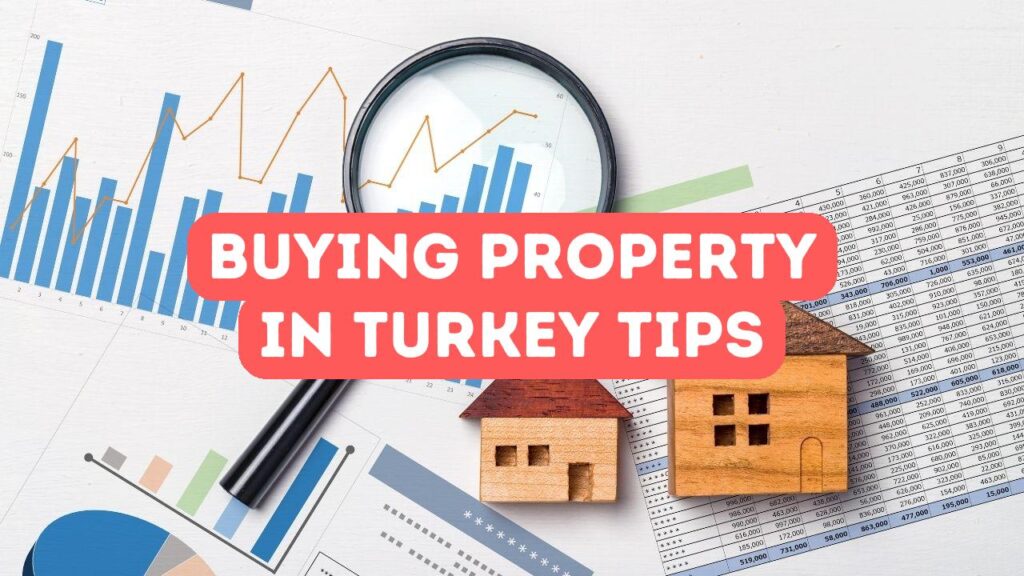Investing in Turkish real estate can feel like stepping into a world filled with both promise and pitfalls. The allure of buying property in Turkey includes diverse landscapes and relatively affordable prices compared to Western markets. However, understanding the pros and cons of investing is vital before diving in. The Turkey real estate market offers attractive opportunities, yet it requires careful evaluation. On the upside, investing in overseas property here could lead to lucrative returns due to Turkey’s thriving tourism and developing economic scene. Conversely, navigating foreign regulations and potential currency fluctuations can be challenging. Do the benefits of a Turkish real estate investment outweigh the risks? Every potential investor should critically weigh factors such as property location and local laws. In doing so, they can decide if this market aligns with their financial goals and risk tolerance. Let’s uncover the layers of buying property in Turkey.
Analyzing the Turkish Real Estate Market Dynamics
Analyzing the Turkish real estate market dynamics unveils a tapestry of growth potential and intricate factors. Turkey stands as a bridge between continents, which significantly impacts its real estate scene. The market has seen rapid changes due to a bustling tourism industry, economic reforms, and a young population eager to buy. On the pros side, investing in overseas property here offers promising returns, with urban areas like Istanbul leading the charge. Yet, prospective buyers should remain wary of the cons, notably currency volatility and local bureaucratic hurdles. Understanding these dynamics is key; without it, buying property in Turkey might feel like navigating a maze blindfolded. Evaluating these elements helps in making informed decisions that align with the investor’s financial outlook. Turkish real estate investment, though exciting, demands a keen eye and strategic thinking to discern its true potential.
When considering a Turkish real estate investment, understanding the pros and cons of investing is crucial. The Turkey real estate market boasts a unique blend of historic charm and modern appeal, making it a popular choice for those investing in overseas property. High tourist interest in buying property in Turkey has injected vitality into the market. Yet, hidden beneath the surface are complexities that could influence decisions. Factors like potential bureaucratic red tape and the intricacies of foreign ownership laws loom large. However, the market’s allure is undeniable. Cities like Istanbul offer vibrant neighborhoods and historic treasures, enticing investors with the promise of high returns. Weighing these elements can be akin to walking a tightrope, balancing lucrative possibilities against potential risks. A clear-eyed exploration of these aspects allows investors to chart a course that’s in harmony with their aspirations and financial goals.
Investing in Turkish real estate carries its own set of advantages and disadvantages that potential investors need to analyze thoroughly. One of the significant pros of investing is the expansive Turkey real estate market, offering a medley of options from beachfront villas to bustling city apartments. The demand caused by a steady influx of tourists further contributes to the market’s growth, enhancing prospects when buying property in Turkey. Yet, it’s crucial to navigate the challenges of foreign investment regulations and market volatility. The nuances involved in investing in overseas property can be maddening, as red tape often creates snags in the process. Still, for those willing to persevere, the rewards can be substantial. These mixed elements highlight the need for a calculated approach. Prospective investors need to weigh the pros and cons of investing with clarity and precision to truly harness the opportunities within the Turkish real estate investment landscape.
Key Benefits of Investment Opportunities in Turkey
Investing in Turkish real estate can indeed be a golden ticket. For starters, the Turkey real estate market is backed by strong tourism, creating high demand for investment properties. Tourists flock to its rich historical heritage and stunning coastlines, making renting out properties a profitable endeavor. Moreover, the cost-effectiveness of buying property in Turkey compared to other regions is a magnet for savvy investors seeking handsome returns. While investing in overseas property offers its challenges, Turkey provides an edge with its emerging economy and strategic location bridging Europe and Asia. This unique position enhances potential growth, contributing to stronger investment prospects. Moreover, friendly government policies make the process of investing in Turkish real estate smoother than expected. The pros and cons of investing vary, but for those looking to capitalize on market growth, Turkey might just open the door to prosperity.
Investing in Turkish real estate offers unique advantages that are difficult to find elsewhere. Chief among these is the solid tourism backbone, which assures property owners of constant rental returns. Buying property in Turkey often means acquiring a slice of paradise amongst charming locales at a fraction of the cost seen in other international hotspots. In the Turkey real estate market, affordability does not compromise quality, which is appealing for investors aiming to maximize their money. Investing in overseas property here also places you at an intersection of two continents, enriching growth potential. The Turkish real estate investment scene is bolstered by stable government policies emphasizing foreign investment attraction. This supportive environment simplifies processes and encourages exploration into this burgeoning market. When contemplating the pros and cons of investing, remember that the possibility of high returns in Turkey, coupled with its enduring attractiveness, makes it a compelling proposition for investors worldwide.
When exploring the key benefits of Turkish real estate investment, it’s clear that location is a genuine asset. Positioned strategically between Europe and Asia, Turkey boasts a crossroads where cultures and opportunities meet. This not only enriches your investment with global appeal but also paves the way for economic vibrancy. The pros and cons of investing here lean heavily toward benefits, as buying property in Turkey offers a favorable exchange rate, maximizing your purchasing power. In the Turkey real estate market, the low cost of entry into prime locales enhances potential for significant capital appreciation. Moreover, investing in overseas property in Turkey means embracing a supportive legal framework that prioritizes foreign investment. With government incentives aimed at real estate development, investors find an environment ripe for growth. Thus, for those seeking a dynamic addition to their portfolio, Turkish real estate presents a hedge against stagnant markets elsewhere.
Potential Risks and Challenges for Investors
Investing in Turkish real estate comes with its own set of challenges that every prudent investor must consider. Currency fluctuations can affect your returns, especially when the lira stumbles. Understanding and adhering to local legal requirements adds another layer of complexity. It’s not just about signing on the dotted line; unfamiliarity with Turkey’s property laws might lead to unexpected hurdles. The Turkey real estate market also varies widely, with certain areas offering more potential than others. Identifying the right location for buying property in Turkey requires diligent research. There’s also the matter of property management if you’re investing in overseas property and not residing locally. These factors contribute to the pros and cons of investing, forming a multifaceted challenge. Therefore, prospective investors need to navigate these waters carefully. Taking the time to learn and plan effectively can prevent risks from overshadowing the potential gains of a Turkish real estate investment.
Investing in overseas property, particularly in the Turkey real estate market, comes with its share of potential risks. One significant concern for Turkish real estate investments involves foreign regulations that can bewilder even seasoned investors. These rules require scrupulous understanding, as missteps could result in legal headaches. Moreover, political factors consistently influence the Turkey real estate market, creating an unpredictable investment environment. Buying property in Turkey also means dealing with the pros and cons of fluctuating market demand, which can affect property value and rental income. The potential for natural disasters, like earthquakes, adds another layer of risk, reminding investors that due diligence is paramount. While there’s a wealth of opportunities to explore, prospective buyers must weigh these factors meticulously. Understanding these risks ensures that every Turkish real estate investment decision is grounded in practicality and foresight, safeguarding not just investments but peace of mind as well.
Investing in Turkish real estate requires vigilance, especially with the ever-present threat of market volatility. The Turkey real estate market is susceptible to shifts that can affect property values overnight. Political instability, though sporadic, can also play a part in market fluctuations, leaving investors on edge. Furthermore, the complexity of infrastructure development can impact the appeal of particular locations. This means the pros and cons of investing are unavoidably intertwined with the nation’s internal dynamics. For those considering buying property in Turkey, thorough market research should be non-negotiable. Being mindful of urban planning regulations and potential legal changes is essential when venturing into Turkish real estate investment. Equally, it’s crucial not to overlook the language barrier, which might complicate negotiations. By equipping oneself with comprehensive local knowledge and perhaps seeking expert advice, investors can mitigate these challenges, ensuring that investing in overseas property translates into a rewarding venture.






